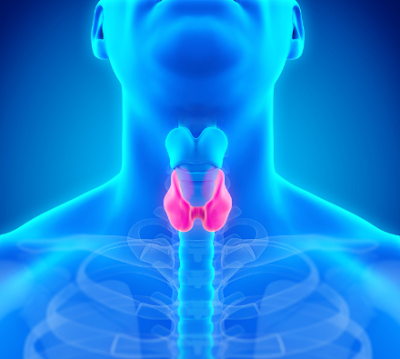Introduction to Levothyroxine
Levothyroxine is a synthetic form of the thyroid hormone thyroxine (T4), which is essential for regulating metabolism and various bodily functions. This article explores the discovery, mechanism of action, and medical uses of levothyroxine.
Discovery of Levothyroxine
Levothyroxine was first synthesized in the 1920s as a treatment for hypothyroidism, a condition characterized by insufficient thyroid hormone production. Its discovery revolutionized the management of thyroid disorders and paved the way for effective hormone replacement therapy.
Mechanism of Action of Levothyroxine
Levothyroxine exerts its therapeutic effects by mimicking the action of endogenous thyroxine. Once absorbed into the bloodstream, levothyroxine is converted into triiodothyronine (T3), the active form of thyroid hormone, in peripheral tissues. T3 then binds to thyroid hormone receptors in target cells, regulating gene expression and metabolic processes.
Medical Uses of Levothyroxine
Levothyroxine for Hypothyroidism
The primary indication for levothyroxine is the treatment of hypothyroidism, wherein the thyroid gland fails to produce adequate thyroid hormones. By supplementing deficient thyroid hormone levels, levothyroxine restores metabolic balance and alleviates symptoms such as fatigue, weight gain, and cold intolerance.
Levothyroxine for Thyroid Cancer
In cases of thyroid cancer, levothyroxine may be used as adjuvant therapy following thyroidectomy (surgical removal of the thyroid gland). By suppressing thyroid-stimulating hormone (TSH) secretion from the pituitary gland, levothyroxine helps prevent tumor recurrence and facilitates monitoring of disease progression.
Levothyroxine for Thyroid Nodules
Levothyroxine therapy may also be prescribed for benign thyroid nodules, particularly those causing compressive symptoms or exhibiting worrisome features on imaging studies. In such cases, levothyroxine can shrink nodules and alleviate associated symptoms, avoiding the need for surgical intervention.
Side Effects and Risks of Levothyroxine
While levothyroxine is generally well-tolerated, it can cause side effects and pose risks if not used appropriately. Common side effects include palpitations, tremors, insomnia, and gastrointestinal upset. Rare but serious adverse effects may include cardiac arrhythmias, osteoporosis, and thyrotoxicosis.
Interactions with Other Medications
Levothyroxine may interact with certain medications, supplements, and food substances, altering its absorption, metabolism, or effectiveness. Patients should inform their healthcare providers about all medications and supplements they are taking to minimize the risk of drug interactions.
Dosage and Administration of Levothyroxine
The optimal dosage of levothyroxine varies depending on factors such as age, weight, underlying medical conditions, and thyroid hormone levels. Healthcare providers typically start with a low dose and adjust it gradually based on clinical response and laboratory tests.
Importance of Regular Monitoring
Regular monitoring of thyroid function tests, including serum TSH and free T4 levels, is essential to ensure the effectiveness and safety of levothyroxine therapy. Adjustments to the dosage may be necessary to maintain thyroid hormone levels within the target range.
Brands of Levothyroxine
Several pharmaceutical companies produce levothyroxine under different brand names. Some of the most recognized brands include Synthroid, Levoxyl, Tirosint, and Unithroid. Each brand may have variations in formulation and inactive ingredients, but they all contain the active ingredient levothyroxine sodium.
Off-Label Uses of Levothyroxine
Levothyroxine for Weight Loss
One off-label use of levothyroxine is for weight loss. Some individuals with normal thyroid function may be prescribed levothyroxine off-label in an attempt to boost their metabolism and aid in weight loss. However, using levothyroxine for weight loss is controversial and not recommended due to potential risks and lack of sufficient evidence supporting its efficacy.
Levothyroxine for Depression
There is some evidence to suggest that levothyroxine may have antidepressant effects, particularly in individuals with subclinical hypothyroidism or thyroid hormone imbalances. However, more research is needed to establish the efficacy and safety of using levothyroxine for depression as an off-label treatment.
Levothyroxine for Fibromyalgia
Fibromyalgia is a chronic pain disorder characterized by widespread musculoskeletal pain and fatigue. Some healthcare providers may prescribe levothyroxine off-label to individuals with fibromyalgia, theorizing that thyroid hormone modulation may alleviate symptoms. However, the use of levothyroxine for fibromyalgia remains controversial and requires further investigation.
Levothyroxine for Infertility
Thyroid disorders, particularly hypothyroidism, can impact fertility and reproductive health. In cases of infertility associated with thyroid dysfunction, levothyroxine may be prescribed off-label to restore thyroid hormone balance and improve fertility outcomes. However, the use of levothyroxine for infertility should be carefully monitored by a healthcare provider.
Risks and Considerations
It's essential to recognize that using levothyroxine for off-label purposes carries potential risks and considerations. Off-label use may not be supported by robust clinical evidence, and there is a risk of adverse effects and interactions with other medications. Patients considering off-label use of levothyroxine should consult with their healthcare provider to weigh the potential benefits and risks.
Conclusion
In conclusion, levothyroxine is a cornerstone therapy for hypothyroidism and plays a vital role in the management of thyroid cancer and nodules. Understanding its discovery, mechanism of action, and medical uses is crucial for healthcare providers and patients alike to optimize treatment outcomes. Levothyroxine is primarily used for thyroid hormone replacement therapy, it is sometimes prescribed off-label for conditions such as weight loss, depression, fibromyalgia, and infertility. However, the off-label use of levothyroxine should be approached with caution, and patients should seek guidance from their healthcare provider.
FAQs about Levothyroxine
1. Is it safe to use levothyroxine for weight loss?
Using levothyroxine for weight loss is not recommended and can be dangerous, especially for individuals with normal thyroid function. It may lead to serious side effects and complications.
2. Can levothyroxine improve mood and alleviate depression?
While there is some evidence suggesting that levothyroxine may have antidepressant effects, its use for depression is considered off-label and requires further research to establish efficacy and safety.
3. Is levothyroxine effective for treating fibromyalgia?
The use of levothyroxine for fibromyalgia is controversial, and there is limited evidence supporting its efficacy. Patients with fibromyalgia should explore other treatment options with their healthcare provider.
4. Can levothyroxine help with infertility?
In cases of infertility associated with thyroid dysfunction, levothyroxine may be prescribed to restore thyroid hormone balance and improve fertility outcomes. However, its use should be carefully monitored by a healthcare provider.
5. Are there any potential side effects of using levothyroxine off-label?
Yes, using levothyroxine off-label can pose risks of adverse effects and interactions with other medications. Patients should discuss the potential risks and benefits with their healthcare provider before initiating treatment.
6. Is levothyroxine safe during pregnancy?
Yes, levothyroxine is generally considered safe during pregnancy and is essential for maintaining maternal and fetal thyroid function. Close monitoring and dose adjustments may be necessary to ensure optimal thyroid hormone levels throughout pregnancy.
7. Can levothyroxine be taken with food?
Levothyroxine should be taken on an empty stomach, preferably in the morning, at least 30 minutes before breakfast or other medications. Food and certain substances, such as calcium supplements and antacids, can interfere with levothyroxine absorption.
8. What should I do if I miss a dose of levothyroxine?
If you miss a dose of levothyroxine, take it as soon as you remember, unless it is almost time for your next scheduled dose. Do not double the dose to catch up. It is essential to maintain a consistent dosing schedule to avoid fluctuations in thyroid hormone levels.
9. How long does it take for levothyroxine to start working?
Levothyroxine typically takes several weeks to reach its full therapeutic effect. Patients may begin to notice improvements in symptoms, such as increased energy and reduced fatigue, within a few weeks of starting treatment.
10. Can levothyroxine be stopped once thyroid function is restored?
Levothyroxine therapy is usually lifelong for individuals with primary hypothyroidism, as the underlying cause (e.g., autoimmune thyroiditis) often requires continuous hormone replacement. Discontinuing levothyroxine without medical supervision can lead to recurrence of symptoms and complications.



